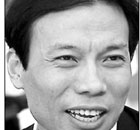Government and Policy
Expo: A lesson on the development curve
(China Daily)
Updated: 2010-05-01 09:22
 |
Large Medium Small |
The World Expo, where world cities meet, opens in Shanghai today.
We have enough reason to feel proud of and inspired by our country's ability to host such a big global event less than two years after the success of the Beijing Olympic Games.
It is the realization of a dream described by a Shanghai resident in his novel a century ago. And it is befitting that it becomes a reality in that very city, the commercial hub and the largest metropolis in the country. It indeed is a milestone in China's economic development and social progress.
Yet we should not consider it the pinnacle of China's economic success, for it is another, though big, step the country has taken toward sustainable development.
As the theme, "Better City, Better Life", of the Expo suggests, the six-month event would reflect our achievements in urbanization and create an opportunity for us to learn from the accomplishments and mistakes of the developed countries.
The past three decades have seen the highest rate of urbanization in the country. Where will the urbanization drive lead to and how will it impact the future of China? The World Expo, whose theme is urban development, could very well provide the answer.
But it is still difficult to define a "better city". As a result of industrial development, cities today create negative impacts on human life. The concrete blocks distance urban residents from nature. Waste, a large part of them unnecessary, toxic gas emissions, and water and noise pollution are taking a toll on urban residents' health. And fierce competitions have deprived people of their spontaneity.
But still cities hold special attraction for the youth, especially in developing countries such as China. That's why about 200 million people from rural areas have migrated to cities for work in the past three decades, and more are expected to follow.
Urbanization is a reality. So, the description of a "better city" is of utmost importance to the future of this country and wellbeing of its people.
Are high-rises, wider streets and larger squares the defining factors of a "better city"? At least, the mushrooming of high-rises and skyscrapers, road-widening projects and construction of larger squares in many Chinese cities testify to the fact that a large number of our decision-makers and urban planners believe so.
Thanks to modern technology it is much easier and faster to build or rebuild a city today. But modern technology's achievements do not always constitute happiness. What is more important than technology and makes it serve people's interest better is concept. That is where the true value of the Shanghai Expo lies.
Look at the zero-carbon hall built for the Expo. It uses solar and wind power to meet its electricity demands. It will use leftover food to generate power, and water from the Huangpu River as a heat sink to moderate the temperature in the hall.
Japan's purple and silkworm cocoon-shaped pavilion is covered with flexible solar cells that can generate up to 30 kilowatts of electricity an hour. And Switzerland's pavilion has a rooftop alpine meadow made from biodegradable materials such as soybean. These are example that can be emulated without much difficulty.
That the Expo organizing committee has adopted these and other measures to reduce carbon emissions and make the event as green as possible shows the basic concept that a "better city" should at least be eco-friendly.
Of course, MANY more elements have to be factored in to make a city a pleasant place to live. Among other things, good management makes a big difference to the quality of city life. Continuous traffic jams in almost all parts of a city, digging up of roads every now and then to repair water pipes and telephone and other cables, dirty streets, messy markets and poor social security can never be part of a pleasant city. But they still are and continue to compromise the quality of life in quite a number of Chinese cities.
The Expo maybe is a carnival for Shanghai residents and those from the rest of the world who visit it. It is justifiable for visitors to derive pleasure from the event. But its significance and value is far beyond that.
The government has spent 28.6 billion yuan ($4.19 billion) to host the Expo. It would be foolish to hold such an expensive event just for fun. If we learn to redefine what a "better city" is and how it can be made environmentally-friendly and sustainable in order to benefit the country and its people, the Expo would be worth all the efforts and money.







